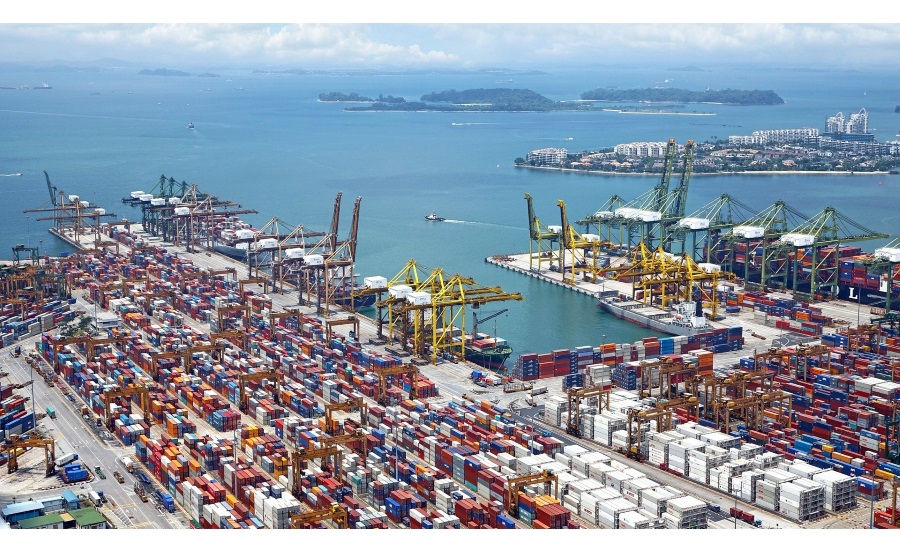The Finance Ministry has described the 5.4% Gross Domestic Product growth rate as sign that the economy is on the rebound post the COVID-19 pandemic.
The economy expanded by 0.5% in 2020.
In a statement, the Ministry said “these developments are positive and confirm the fact that, the economy is rebounding post-COVID-19, the rate of debt accumulation is tapering off, and there is a slowdown in fiscal expansion with Ghana on track to return to the Fiscal Responsibility Act deficit threshold of 5% of GDP by 2024.”
The provisional real GDP growth rate for 2021 showed a positive outturn of 5.4%, exceeding the 4.4% 2021 projected outturn by 1 percentage point and the Sub Saharan average growth rate by 0.9 percentage point.
Similarly, the non-oil real GDP expanded from 1.0% in 2020 to 6.9% in 2021 (the highest non-oil real GDP growth rate since the rebasing was done in 2013) exceeding the target of 5.9% for the period.
The nominal GDP for 2021 is estimated at GH¢459.130 billion, over GH¢18 billion more than the projected outturn of GH¢440.869 million for the period. In 2020, the outturn was GH¢391.940 billion recorded in 2020.

The Finance Ministry said the major implication of this higher-than-projected GDP outturn for 2021 is that all economic indicators expressed as a ratio of GDP will change to reflect the updated GDP data.
“These ratios include the debt to GDP ratio, a key factor in determining debt sustainability, the fiscal deficit to GDP ratio, and revenue to GDP ratio. The new GDP data also has implications for the nominal 2022 GDP target and the growth rate as it is based on the 2021 GDP data which have now been updated.”
“The fiscal deficit (including energy and Finsec payments) is now showing a decline (as a percent of GDP) from 15.0% to 14.7% of GDP for 2020. Similarly, the fiscal deficit of 2021 has reduced from 11.7% to 11.4”, it further said.
The Finance Minister empasised that Ghana’s public debt stock expressed as percentage of GDP now stands at 76.6% of GDP at the end of 2021 compared to the earlier reported 80.1%. Similarly, the 2020 debt stock it said has also reduced from 76.1% to 74.4%, a further confirmation that the rate of debt accumulation has slowed to pre-pandemic levels.
The Ministry continued that it will update its debt sustainability analysis (DSA) and revise its GDP projections for 2022 and the medium-term to reflect the positive developments in 2021 as well as recent policy decisions which have a bearing on sustaining the momentum towards robust economic growth.
Latest Stories
-
Top 20 Ghanaian songs released in 2024
6 minutes -
Beating Messi’s Inter Miami to MLS Cup feels amazing – Joseph Paintsil
20 minutes -
NDC administration will reverse all ‘last-minute’ gov’t employee promotions – Asiedu Nketiah
31 minutes -
Kudus sights ‘authority and kingship’ for elephant stool celebration
32 minutes -
We’ll embrace cutting-edge technologies to address emerging healthcare needs – Prof. Antwi-Kusi
1 hour -
Nana Aba Anamoah, Cwesi Oteng special guests for Philip Nai and Friends’ charity event
1 hour -
Environmental protection officers receive training on how to tackle climate change
1 hour -
CLOGSAG vows to resist partisan appointments in Civil, Local Government Service
2 hours -
Peasant Farmers Association welcomes Mahama’s move to rename Agric Ministry
2 hours -
NDC grateful to chiefs, people of Bono Region -Asiedu Nketia
2 hours -
Ban on smoking in public: FDA engages food service establishments on compliance
2 hours -
Mahama’s administration to consider opening Ghana’s Mission in Budapest
2 hours -
GEPA commits to building robust systems that empower MSMEs
3 hours -
Twifo Atti-Morkwa poultry farmers in distress due to high cost of feed
3 hours -
Central Region PURC assures residents of constant water, power supply during yuletide
3 hours

